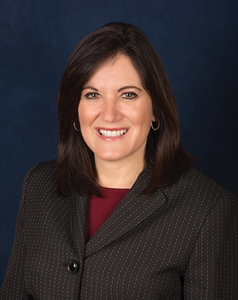
FCAP Community
Published October 2018
Florida Community Association Professionals’ (FCAP) training is offered on two levels. Level one consists of courses meeting Florida’s continuing education requirements for CAMs, and level two is the Florida Advanced CAM Studies (FACS) course. For further information about the more than 50 online continuing education classes available or to pursue the Certified Florida Community Association Manager (CFCAM) designation, please visit www.fcapgroup.com/membership/education-training/.
CAM to CAM
Marcy L. Kravit, CMCA, AMS, PCAM, CFCAM
AKAM ON-SITE Managing Director
FCAP Education and Training Coordinator
Board of Directors Code of Conduct, Role, Responsibilities, and Governance, Part I
A board of directors must act in good faith in fulfilling their duties. As manager, what do you suggest I do to promote ethical conduct and educate my condominium board of directors on their role, responsibilities, and governance?
In 2017, the Florida Senate unanimously approved a bill that imposes criminal penalties on boards for violations on voting fraud, theft, misappropriation of funds, unethical bidding practices, and conflicts of interests. I attended a class conducted by Donna Berger, Esq., and she recommended associations adopt a Board Code of Conduct.
I agree with Donna that it is advantageous for association boards to adopt a Board Code of Conduct, and I recommend that as manager, you establish ethical guidelines and policies to acknowledge their role, responsibilities, and governance to protect the association. It goes without saying that the majority of board members display honesty, integrity, confidentiality, and transparency. These written guidelines can form the framework for your association to work together in harmony. Each director would be required to sign and agree to the terms set forth in the document. In addition, I highly recommend that all boards attend a Board Certification Class.
Please find below a sample of some items you wish to consider and include when drafting a Board Code of Conduct. I have included information from the Department of Business and Professional Regulation’s Division of Florida Condominiums, Timeshares, and Mobile Homes’ Condominium Governance Form which can be found at http://www.myfloridalicense.com/dbpr/lsc/documents/governanceform07142011.pdf.
Board of Directors Code of Conduct, Role, Responsibilities, and Governance
As a board member in a Florida community association, I have read and agree to uphold the association “Board Of Directors Code Of Conduct” as stated in this document and the Department of Business and Professional Regulation’s Division of Florida Condominiums, Timeshares, and Mobile Homes’ Condominium Governance Form.
Board Members’ Duties to Unit Owners
- The board of directors has a fiduciary duty to the unit owners and has the responsibility to act with the highest degree of good faith and to place the interests of the unit owners above the personal interests of the directors.
- The board must abide by the condominium documents, the condominium laws and regulations, and the rules of the association.
- The board manages the day-to-day affairs of the association.
- The board has the authority to levy assessments and maintain, repair, and replace the common elements or association property.
- The board of directors may hire a property management firm subject to its own primary responsibility for such management.
- The board must provide a substantive written response to an inquiry submitted to the board by certified mail. The response must be sent within 30 days, or within 60 days if the board requests a legal opinion.
- The association must make its records available for unit owner inspection within five working days after receiving a written request and comply with the Florida Statutes.
Meetings and Notices
- Except in the case of valid emergencies, associations must provide at least 48 hours’ notice of board and committee meetings, posted conspicuously on the association property.
- Notice of the annual meeting, the budget meeting, and any meetings at which the board will vote on a special assessment or changes to rules concerning unit use must be mailed, electronically transmitted, or delivered to unit owners, and posted on the condominium property at least 14 continuous days in advance of the meeting.
- Written notification of any special assessment must state the specific purpose of the special assessment.
- A copy of the proposed annual budget must be mailed, electronically transmitted, or delivered to each unit owner.
- The association must provide notice of any legal action by which the association may be exposed to liability in excess of insurance coverage so that unit owners may intervene and defend on their own behalf.
- Board members are not permitted to send out any notices or contact residents without the written authorization from the president and/or the majority of the board.
- The board must allow unit owners or their designated representatives to speak at board and committee meetings subject to reasonable restrictions.
- Associations must provide notification of a hearing before a committee of other unit owners before the board can levy a fine or suspension against a unit owner.
Elections
- The association must provide by mail or personal delivery a first notice of an election no less than 60 days prior to the election.
- The association must provide a second notice of the election, along with a ballot, an inner envelope, an outer envelope, and copies of any candidate information sheets submitted in a timely manner, no less than 14 days prior to the election.
Association Finances
- Unless the governing documents provide otherwise, the board of directors has the authority to levy assessments, including special assessments in accordance with the condominium documents and the state statutes.
- The board must prepare an annual budget of the revenues and expenses and hand deliver, electronically transmit, or send a copy to the unit owners at least 14 days prior to the budget meeting. The budget must include all estimated revenues and expenses and reserves for certain deferred maintenance and capital expenditures projects.
- Within 90 days after the end of the fiscal year, or annually on a date provided in the bylaws, the association must prepare a financial report for the preceding fiscal year. No later than 120 days after the end of the fiscal year or other date as provided in the bylaws, the association must mail to each unit owner at the address last furnished to the association by the unit owner, or hand deliver to each unit owner, a copy of the financial report or a notice that a copy of the financial report will be emailed, mailed, or hand delivered to the unit owner, without charge, upon receipt of a written request from the unit owner.
Because You Asked
By Betsy Barbieux, CAM, CFCAM
Betsy,
Are estoppels part of the official records, and do you keep them in the owner file or in a separate file just for estoppels? Thanks!
-Lori
Lori,
I keep estoppels in the paper and electronic files of each of the parcels. That way I can track the history of the sales of that parcel. I don’t think they’re actually official records, but I would still keep them in the parcel files.
-Betsy
Betsy,
I received my CAM license in August 2015. I then started a business and have been pretty successful—so much so that I needed to add my wife, Barbara, to the business. She just took your class in Sarasota, and you let me attend with her.
I wanted to say thank you for the refresher. I was amazed at how much I had forgotten and how much I needed to know. I thought I knew a lot about CAMs and the rules, but my eyes were truly opened to how much I forgot.
It was amazing to refresh my knowledge and to learn again what I should have already known, but life and business get in the way. Now, I can say I truly do know the rules. I recommend that everyone sit through your pre-licensing class a second time! Thank you—I feel like a new man.
-Charlie
Charlie,
It was wonderful to see you again, and I’m so happy that attending with Barbara was helpful and refreshing!
-Betsy
Betsy,
Is there a website that you can search to see if the current board completed the necessary certification class to be directors? Unfortunately, they have been on the board for five years now, and we have been trying to get them off the board but never have a quorum at the HOA meeting. Is there another way to remove directors? Can you count ballots secretly?
-Missy
Missy,
No, there is not a state website to check for board member certifications. You can find that information by making a specific request to the board or manager for access to association official records. If those board members have not submitted a certification within 90 days of their election, they are automatically removed from the board. There’s no legal action to be taken other than a letter sent to them saying they are removed. Otherwise, the way you get board members off is to vote for new board members to be on the board.
However, in the past in a homeowners association, if you didn’t have a quorum at the annual meeting, you couldn’t elect new board members. That has been changed as of this July 1. A quorum at the HOA annual meeting is no longer required in order to count election ballots. So, you need to rally the owners and get them stirred up enough to be sure to attend the annual meeting or send in their proxies.
The removal that you attempted, was it an official recall? Did you follow the statutory procedures? You might be in a position for an arbitration proceeding. The membership can remove a board member after they have been elected by using a process called recall. You will find part of it described at Section 720.303(10). There are more instructions and direction in the Rules in the Florida Administrative Code, which can be accessed at www.leg.state.fl.us/Statutes/index.cfm?App_mode=Display_Statute&URL=0700-0799/ 0720/0720.html.
Ballots and tally sheets must be kept for one year and are open to owners’ inspection; counting cannot be done secretly.
-Betsy
Email Intelligence—Does Your Board Possess It?
By Donna DiMaggio Berger
www.beckerlawyers.com
…Here are some questions you need to ask yourselves. Then, craft the appropriate email policy with your association attorney’s assistance to ensure it complies with both your documents and applicable law.
- If a resident emails the entire board with a complaint, who should respond? Without a protocol in place, chances are everyone will respond (and sometimes with different answers and conflicting information), or no one will respond as a result of assuming someone else did.
- If a resident’s email is akin to a rant with no specific purpose or request, how should it be answered, if at all? Florida law requires certified inquiries and written requests to inspect the association’s books and records to be answered within a certain time period. However, nothing requires boards to respond to venomous email rants. Decide as a board how you wish to handle these kinds of communications. Some boards choose to use a simple auto response such as, “Thank you for your email. Your input will be reviewed and should a response be necessary, you will receive one.






